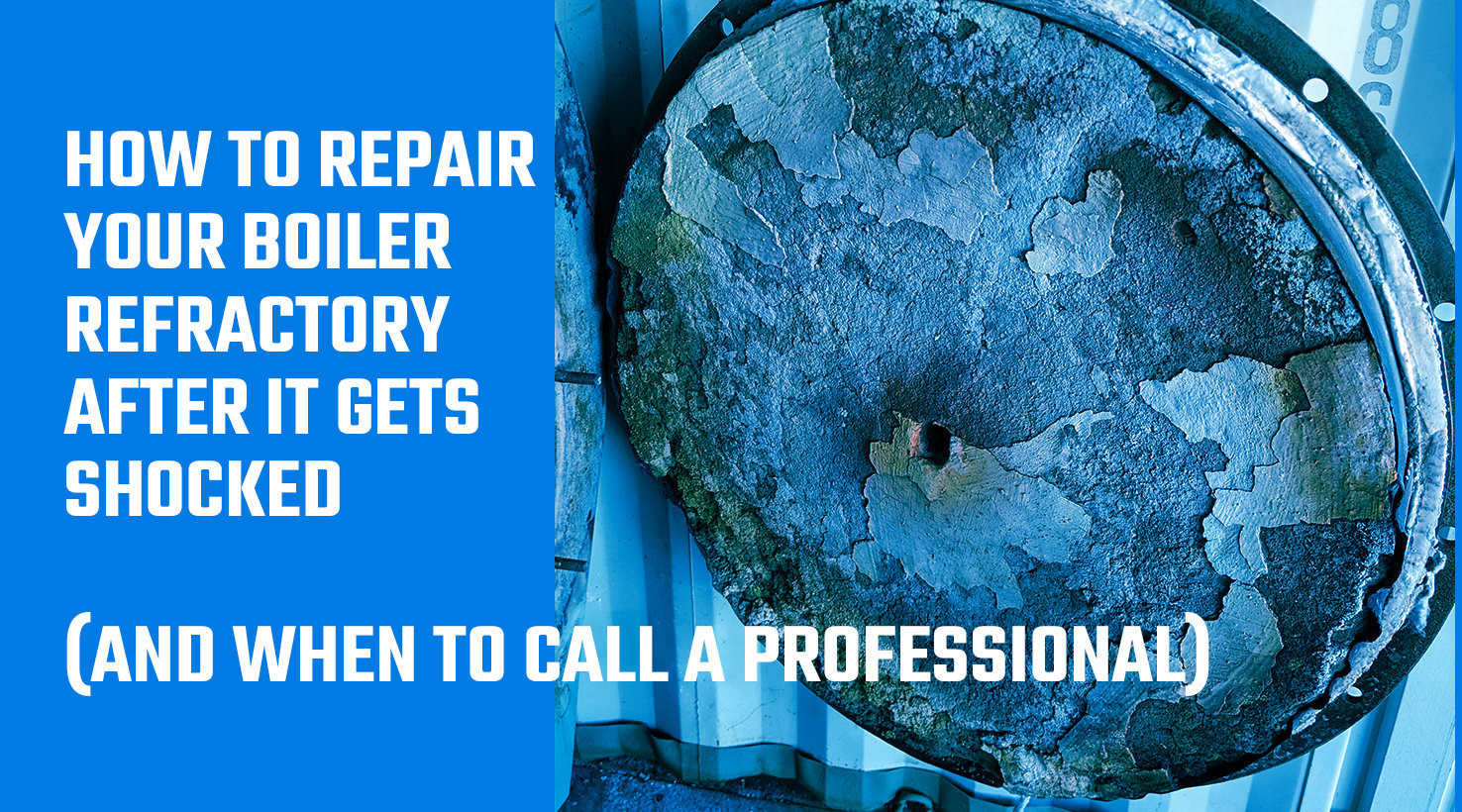Imagine this:
You're in Idaho in winter. It's cold. Your boiler is next to the garage door where the chemical drums are delivered.
The delivery man gets there, so you open the garage door. He brings in the drums.
While the door is open, the boiler decides to cycle. It shuts off and goes through post-purge...or it comes on and goes through pre-purge...
That detail isn't important.
Because while the boiler cycled, it sucked in the 8-degree Idaho winter air...
And shocked the refractory, putting a crack in it and causing severe damage.
This is just one way you can shock the refractory without turning the boiler on or off.
And shocking a boiler can severely damage it, so what's the solution?
Planning.
Find a different way to get the drums into the facility. Or wait a few days until the weather warms up a little, then bring the drum in.
But we've been in this business long enough to know that accidents happen.
So if you shock your refractory and put a crack in it, here's a safe rule-of-thumb:
If the crack/hole is bigger than your fist, call a professional. Because it's very hard to get right.
But if it's smaller than that and you want to repair it yourself, here's how to do it:
- "V out" cracks by cleaning out loose materials.
- Using a spray bottle, dampen Ram 90 and the area to be patched.
- Work Ram 90 into the cracks and smooth it out.
*Note: Any cracks 1/8 of an inch or less are heat cracks and do not need to be patched.
But beware:
If you patch a door incorrectly and the boiler runs for a period of time...
The heat can follow through the back side of the refractory and exit at the corner of the door, burning it.
Once you fully burn the metal on a door -- it will need to be replaced. And that's a challenge, because doors can take days, even weeks to arrive at your facility.
So it's worth a small investment to hire a professional to do the patch. Because a repair fee pales in comparison to a replacement fee.
And when you add in the extra cost of having your facility down and out-of-production for multiple days…
You're looking at a much higher cost than you might have expected.
So it's worth it to hire a professional for more serious patches.
Your boiler's refractory plays an important role in your facility's operations. So make sure you do what you can to protect it.
